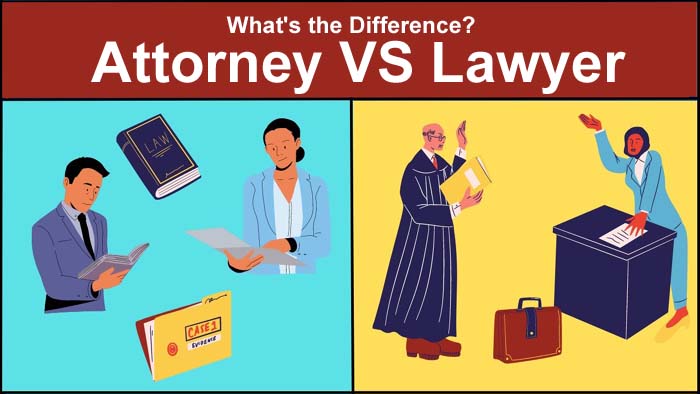In the United States, the terms attorney and lawyer are often used interchangeably. For this reason, people in and outside the legal field often ask, “Are a lawyer and a lawyer the same thing?”.
Colloquially, the specific requirements necessary to be considered a lawyer versus an attorney are not always considered. Although these terms generally refer to the same person in everyday speech, there are distinctions that law students should be aware of.
Understanding the difference between an attorney and a lawyer is important to anyone interested in earning a Juris Doctor (J.D.) degree. Whether you’re wondering how to become a litigator or an attorney, an accurate definition of each term can help guide your career decisions.
Attorney VS Lawyer Comparing the Definitions
Understanding the similarities between the two terms can help you understand the difference between lawyer vs. lawyer. Although both terms refer to someone who is educated in law, understanding the technical definitions brings to light the difference between a lawyer and a lawyer.
Attorney: The origin of attorney is French, and comes from a word that means to act on behalf of others. The term attorney is a shortened form of the formal title ‘attorney at law’. A lawyer is someone who is not only trained and educated in law but also practices it in court. The basic definition of an attorney is one who works as a practitioner in court.
Lawyer: The word lawyer is of Middle English origin, and refers to a person educated and trained in law. Lawyers are people who have gone to law school and often taken and passed the bar exam.
Attorney VS Lawyer Differences in Roles and Duties
Similar to the difference between the definition of lawyer vs. attorney, it is important to understand the difference between the roles and duties of the two professions. As noted, both are formally trained and educated in law, but how a person uses their education and training is often an important difference between a lawyer and a lawyer.
Lawyer: Although a lawyer is someone who has completed law school and passed the bar exam, you don’t have to practice law in court to be considered a lawyer. Lawyers can play a role as a consultant or advisor. Many choose to practice in a specialty area such as estate law, immigration law, or tax law, where they can provide legal advice to clients.
Attorney: As an attorney, you practice law in court. Passing the bar exam is required for an attorney, which gives them the right to practice law in a particular jurisdiction. Like lawyers, barristers are bound by a code of conduct and can practice in both civil and criminal courts.
Other similar statutory provisions
There are other terms that refer to professionals such as barristers and barristers. Lawyer, barrister, barrister, squire, and lawyer are all terms associated with legal professions. There are notable differences between these terms.
Attorney VS Lawyer VS Counsel What are the Differences?
Lawyers, attorneys, and barristers are all trained and educated in law. As mentioned above, lawyers must pass the bar exam and practice law in court. Lawyers may or may not pass the bar exam and may or may not practice law. Consultants provide legal advice and often work for an organization or company. Despite the difference in meaning, the terms are often used interchangeably in everyday language.
Esq vs. JD: What are the differences?
Titles JD and Esq. Both refer to someone who has studied law. J.D. stands for Juris Doctor and indicates that one has studied law and earned a J.D. degree. Esq means Esquire and the title usually indicates that someone has studied law and passed the bar exam. For both terms, there is some variation between states regarding the requirements for each title.
In the United States, lawyer and barrister are often considered synonymous. The two terms are often used interchangeably, but there are some differences in understanding whether you’re considering law school, preparing for the bar exam, or starting a career in law.











